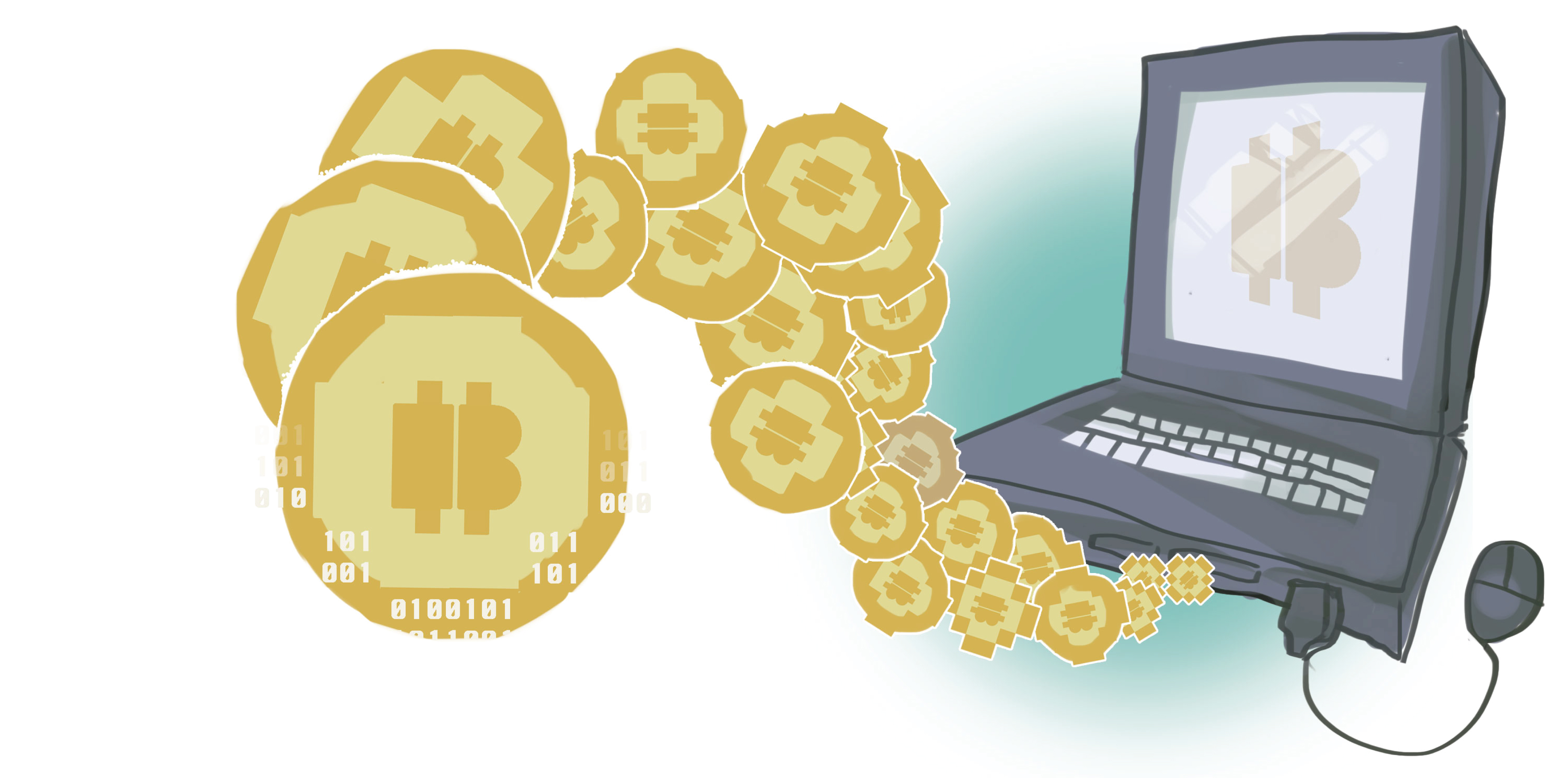Bitcoin offers virtual alternative to traditional currency

By Emily Liu
May 14, 2013 1:44 a.m.
Gerrit Lane’s daily routine on his computer involves checking his email, Facebook and two sites that monitor the market for a virtual currency called Bitcoin.
Lane, a second-year mechanical engineering student, started investing in Bitcoin in fall 2011, just a year and a half after it was first invented. It was a risky move – the value of Bitcoin dramatically fluctuates, and the currency is largely unregulated – but it paid off in the end.
From his investments that totaled about $2,000, Lane has earned almost $11,000.
Bitcoin is a currency system that is completely online and managed by software, said Avanidhar Subrahmanyam, a finance professor at the UCLA Anderson School of Management. Launched in 2009, Bitcoin has recently begun to gather more public attention.
Users of Bitcoin say they are attracted to the fact that the currency – unlike paper money such as dollars and euros – is not managed by a government.
“Lots of people are losing faith in banking as a whole and the government controlling our currency,” Lane said.
The downside, though, is that sellers are not legally required to accept bitcoins as a viable form of payment, which could result in uncertainty, said Hanno Lustig, associate professor of economics at the UCLA Anderson School of Management.
“Merchants can say they accept bitcoins one day, and reject it the next, and the buyer will have to come up with cash in the end,” Subrahmanyam said.
Some use bitcoins to hide financial transactions, especially for illegal online gambling and drug dealing, Lustig said.
Bitcoin users are not legally bound to engage in Bitcoin transactions with their real names, Subrahmanyam said. Instead, Bitcoin transactions occur between virtual wallets identified by alphanumeric characters, Lane said.
Bitcoins are created through software, with a fixed amount of the currency released every day.
There are two ways to procure bitcoins. The first way, called “mining,” requires a supercomputer that can crack complex codes. The reward for breaking the code is a block of bitcoins.
Most users, though, exchange cash for bitcoins on trading websites.
“People think (bitcoins have) value because they think that they will be able to use the bitcoins to buy stuff in the future,” Lustig said. “The bitcoins itself have no intrinsic value.”
The bitcoin supply is strictly controlled such that a fixed amount of bitcoins are released per day, Subrahmanyam said. Bitcoins will continue to be created until 2140, when the total supply of bitcoins in circulation is expected to reach 21 million, he said.
The idea behind Bitcoin is not new, said Beverly Macy, lecturer at the UCLA Extension and founder of Gravity Summit, a social business company.
“Virtual currency and virtual transactions have been present in the gaming world for some time,” she said.
Bitcoin was launched a few years ago by an anonymous individual or group of individuals under the pseudonym of Satoshi Nakamoto, according to the Bitcoin website.
News of a Bitcoin crash from $30 to $2 in fall 2011 piqued Lane’s curiosity and prompted him to research the currency. After closely watching the Bitcoin movement for several months, Lane decided to try his hands at the new currency system.
“I was an early adopter, I got in before big media attention started coming in,” Lane said.
Starting with $200 worth of bitcoins in December 2011, Lane watched as his bitcoins doubled in value from $3 to $6. He then decided to take a plunge with about $2,000 worth of bitcoins from his savings.
Bitcoins slowly gained more attention and more people joined in to make quick bucks.
Speculation, however, also meant high price volatility – prices have been known to fall up to 80 percent and then rise back up over the span of a few hours, Lustig said.
To hedge against the risk of suddenly losing all his investments overnight, Lane largely avoided buying and selling his bitcoins within the same day, and instead sold some every few weeks.
When prices hit a high of about $230 in April this year, he sold the remainder of his bitcoins completely, earning about a $11,000 profit.
“I initially got into bitcoins because I wanted to show support for the idea of a non-government backed online currency,” Lane said. “But people were just getting frantic with speculative trading … so I pulled out because I knew the growth was unsustainable.”
Nevertheless, mainstream websites are starting to jump on the Bitcoin bandwagon.
Earlier this month, PayPal announced it was looking into possibly incorporating bitcoins as an alternative payment option. Days later, the first Bitcoin ATM machine was installed in San Diego.
But increased government oversight of bitcoins will likely stall this expansion, Subrahmanyam said.
“It’s a fad; like fashion it will come and go,” Subrahmanyam said. “I can’t see bitcoins having a future.”
The government has already made some initial steps towards regulating bitcoins. The Financial Crimes Enforcement Network, the arm of the US Treasury targeting financial crimes, updated its currency regulations in March to specify that any transactions from virtual currency to cash must be registered with the Internal Revenue Service to be taxed.
“The thing with bitcoins is that there is more unknown than known about it,” Macy said. “And in this case, it is about the regulation catching up with the technology.”
Lane said he may reinvest in Bitcoin once the market stabilizes, but for now the money will remain in his savings.

